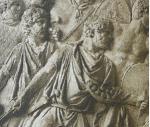You are here
A reverse prayer for rain
Mar 03,2019 - Last updated at Mar 03,2019
Once again, the rain came and with it came mudslides and flash floods that inundated the commercial area of downtown Amman and many other parts of Jordan. Schools and government offices closed, malls became disaster areas and highways became impassable.
Bloggers drew parallels with the 1965 flood in Amman that produced identical headlines in Jordan’s dailies, and the 1966 flood that virtually demolished Maan.
The explanation of the Greater Amman Municipality (GAM) that rainwater carrying mud poured down from the surrounding hills and blocked the sewers which caused flooding, is not acceptable. The last thing that should take our officials by surprise is Jordan’s topography.
Even less acceptable is the attempt by Amman’s acting mayor to reassure the public that damage was much less than video clips on social media suggest, and that damage would have been worse if not for the measures implemented by the municipality in the past four years.
Perhaps someone should explain to him that building an infrastructure is not a favour magnanimously provided by the municipality. It is the reason why municipalities exist. It is also why we pay municipal taxes that gave GAM a budget over JD500 million with no deficit, a portion of which goes to his salary.
Yet, the material damage in downtown Amman amounted to millions of dinars, according to the chairman of the Amman Chamber of Commerce. I believe this figure because shops downtown stock everything including toys, haberdashery, clothes, electric appliances and spices and culinary herbs i.e. goods that are irreparably damaged by floodwater. Now who, if anyone, will compensate these taxpaying shopkeepers who were struggling already?
More importantly: why were we unprepared? The topography that is conducive to flash floods and the region’s cycles of drought and heavy rain were documented from centuries ago. Yet we were caught unprepared time and again, most recently last October when flash floods claimed the lives of more than 20 people, and again last week, and the same will happen the next time it rains.
In many countries, there would be an enquiry into why this happens, and the officials responsible would be held accountable. In Jordan, our noble traditions tend to forgive the trespasses of mere mortals, particularly those in high office. But now, calls for accountability are heard with increasing frequency and volume.
These are not the howls of a lynching mob baying for blood. They are the plaintive wails of troubled people insecure about their future. They pay heavy taxes and all they want is to be left to eke out a living from their lawful commerce.
In summer, their taps run dry, so they accept the official narrative that water is scarce, and they pray to God for his mercy. Then, when this mercy comes in the form of rain, water floods into their shops and destroys their stocks.
This insecurity is building up into cumulative anger. Such anger is probably what the Chinese had in mind when they coined the proverb: “Beware the wrath of a gentle man.”












